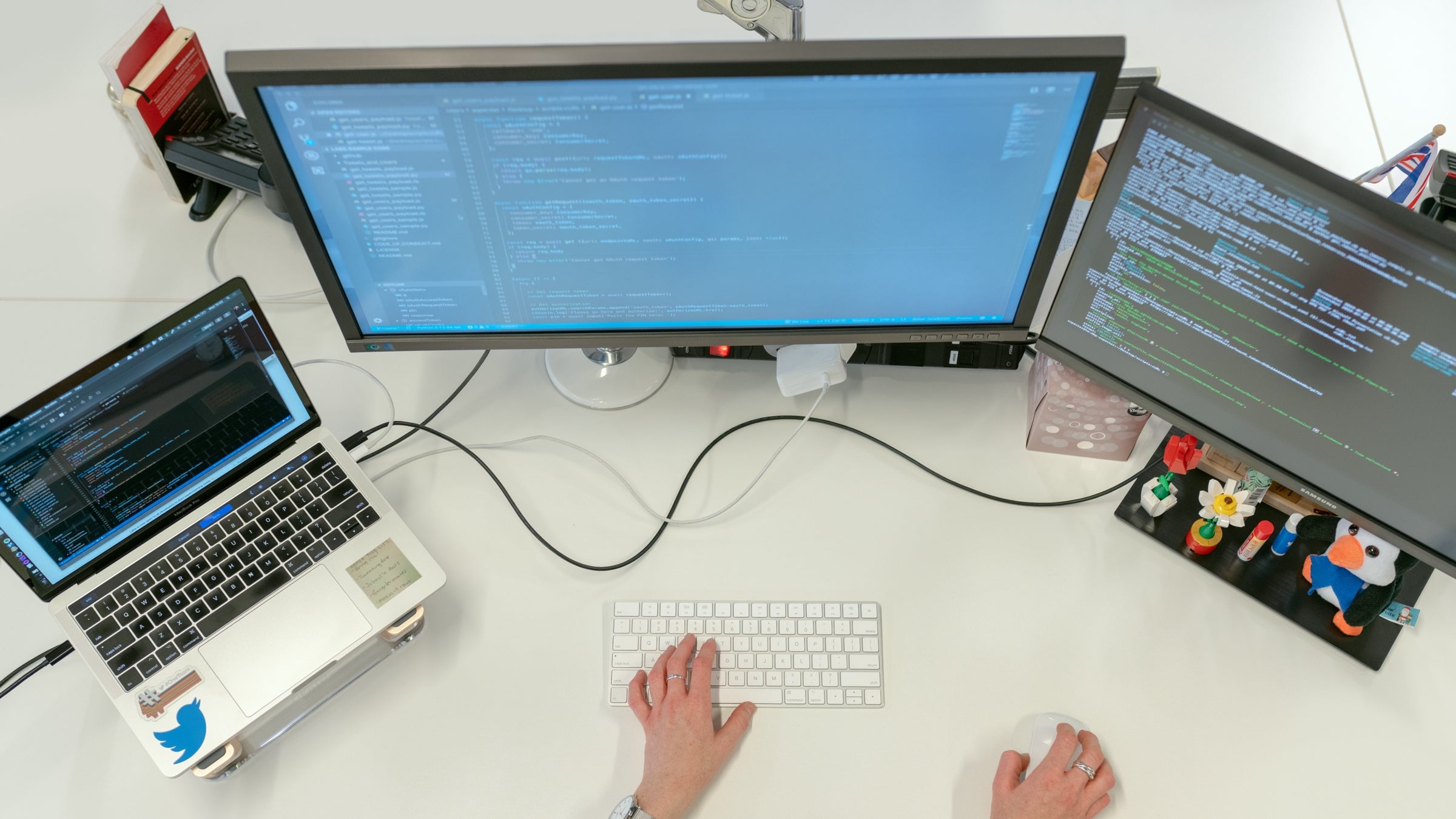Hire Dedicated Developers to Increase Your Software Development Timeline
Wiki Article
Dedicated Developers vs. In-House Teams: Which Is Right for You?
The choice in between making use of specialized programmers and preserving an in-house team is a substantial one that can impact the trajectory of your jobs and general company approach. Conversely, in-house teams contribute to a natural firm culture and a nuanced understanding of long-term objectives.Comprehending Devoted Developers
The growing need for specialized abilities in the tech industry has led to the emergence of committed designers as a feasible service for many organizations. These experts are usually gotten on a task basis, allowing companies to leverage particular knowledge without the long-lasting commitment related to full time hires. Devoted designers are often ingrained within a client's team, offering versatility and scalability to fulfill project demands.This version allows companies to access a global skill pool, which is particularly helpful in a quickly developing technical landscape. Devoted designers can be sourced from numerous geographical locations, making sure that firms can locate the best capability at competitive rates. They frequently bring a riches of experience and knowledge, having dealt with varied jobs throughout various markets.
Moreover, committed designers can focus solely on the jobs at hand, boosting performance and effectiveness. They are outfitted to integrate effortlessly into existing process, teaming up carefully with internal teams to accomplish task goals. This method not just decreases the concern of employment and training however also permits companies to remain dexterous, adapting quickly to changing market needs and technical improvements.
Advantages of In-House Teams

Furthermore, internal teams have a tendency to have a much deeper understanding of the company's objective, values, and goals. This placement can improve worker interaction and inspiration, as employee feel extra attached to their work and the organization's success. In addition, having a specialized in-house team permits for much better placement of approaches and goals, as these participants are constantly concentrated on the business's concerns.
In-house groups likewise assist in quicker decision-making procedures, as they can react a lot more swiftly to challenges and changes. The established relationships and familiarity with company procedures allow for structured process and minimized miscommunication. Eventually, the combination of a cohesive society, positioning with organizational objectives, and efficient communication makes in-house teams an important asset for many organizations, specifically those looking to cultivate lasting development and innovation.
Price Factors To Consider
When assessing cost factors to consider, both in-house groups and devoted developers existing distinct economic implications for organizations. Engaging devoted programmers typically involves a pay-per-project or per hour rate model, which can be cost-efficient for organizations with fluctuating project demands. This strategy permits adaptability in scaling resources up or down, making sure that companies just pay for the solutions they need.On the other hand, internal groups involve fixed expenses, consisting of wages, benefits, and overhead expenses such as office and devices. While this model uses greater control and immediate accessibility of resources, it may cause greater long-term expenses, particularly if the work does not justify a full time team.
In addition, companies must think about the surprise expenses connected with employment and training of internal staff members, which can further strain budget plans. In many cases, the time and sources invested in taking care of an internal group can diminish the company's core service objectives.

Project Management and Versatility
Job monitoring and versatility are essential variables that affect the choice in between in-house groups and committed programmers. Devoted developers usually provide a high degree of versatility, enabling companies to range sources up or down based upon task demands. This agility can be particularly beneficial for businesses experiencing rising and fall work or those seeking to introduce quickly. Devoted groups often have actually established processes for taking care of projects efficiently, leveraging certain methodologies like Agile or Scrum, which promote repetitive development and adaptability.
Ultimately, the choice between internal teams and devoted programmers pivots on the preferred degree of adaptability and the particular task management demands. Firms need to assess their operational characteristics, project intricacy, and source accessibility to identify which alternative straightens ideal with their tactical objectives.
Making the Right Choice
Selecting the ideal advancement technique-- devoted developers or internal groups-- calls for a cautious analysis of different aspects that align with a firm's strategic goals. dedicated development team. Initially, think about the nature of the task. Committed programmers might be more ideal if it requires specialized skills or a fast scale-up. Conversely, in-house groups can supply better continuity and combination with existing employees.Next, assess your budget. Committed developers frequently offer an economical service for temporary projects, while in-house groups might sustain greater long-lasting costs as a result of salaries, benefits, and overhead prices. Assess the degree of control and partnership wanted; in-house teams usually cultivate more powerful communication and alignment with firm society.
In addition, take into consideration the moment frame. If instant outcomes are necessary, specialized programmers can be onboarded quickly, whereas developing an in-house group takes some time for recruitment and training. Finally, evaluate the lasting vision of your organization. Spending in an internal team might produce much better returns over time if continual growth builders online store is crucial. Ultimately, the choice hinges on a thorough evaluation of these variables, guaranteeing placement with your firm's overall goals and operational demands.
Verdict
Finally, the choice in between committed designers and in-house groups depends upon task requirements and business objectives. Committed programmers provide adaptability and specialized experience, making them suitable for temporary efforts. Alternatively, in-house teams cultivate a natural society and deeper positioning with lasting goals. Mindful analysis of spending plan constraints, task timelines, and desired control levels is important for identifying one of the most ideal approach, guaranteeing alignment with critical priorities and operational performance.The decision between utilizing committed designers and maintaining an in-house team is a substantial one that can influence the trajectory of your projects and general service approach.Task monitoring and adaptability are crucial elements that affect the choice between devoted developers and in-house teams. nearshore software development.In comparison, in-house teams might succeed in preserving a consistent job management structure due to their familiarity with the organization's society and long-term goals. Committed developers typically provide an economical solution for short-term projects, while in-house groups might sustain greater published here long-term expenses due to salaries, advantages, and overhead prices.In conclusion, the choice between internal groups and specialized developers hinges on job demands and organizational objectives
Report this wiki page